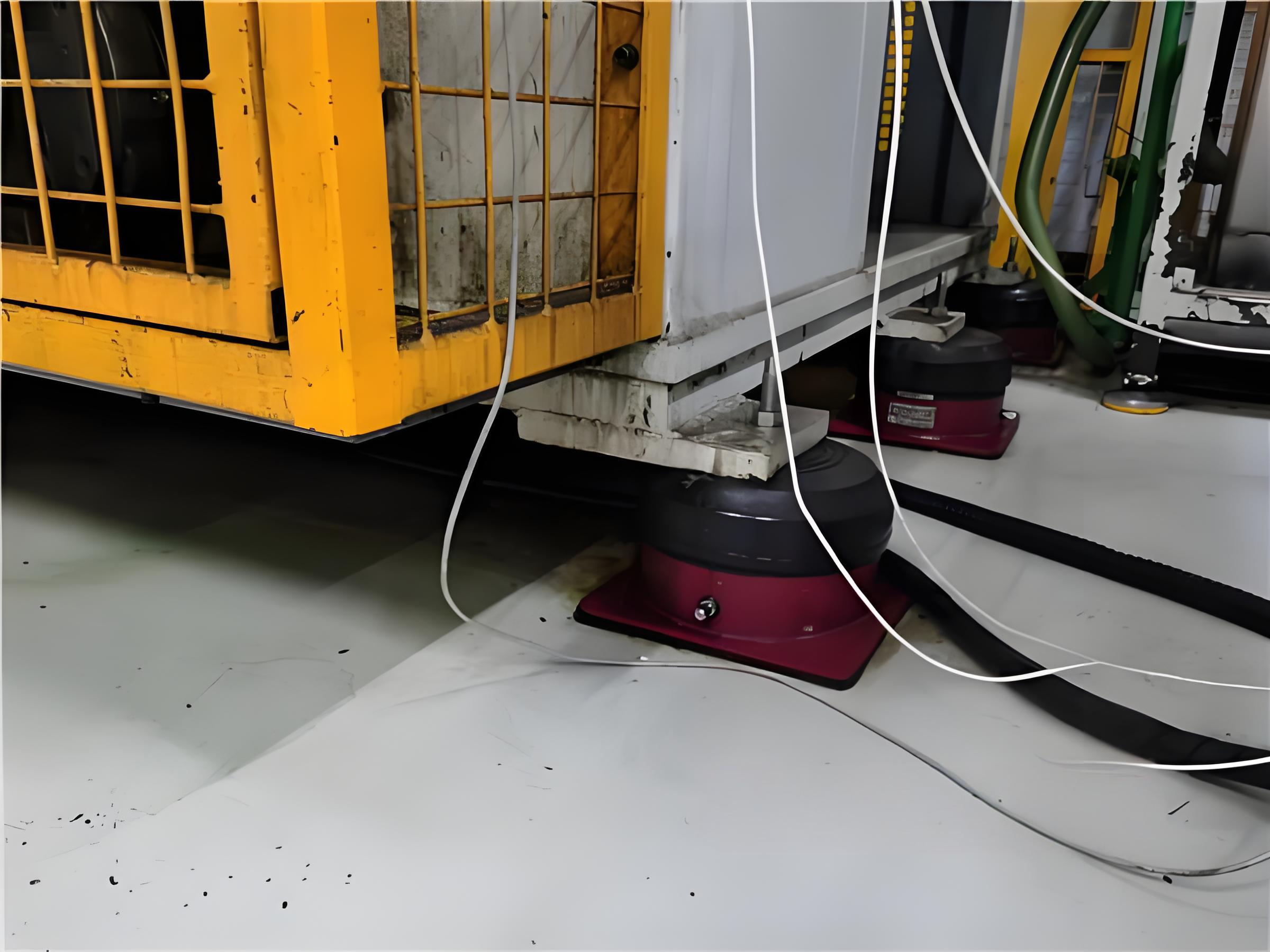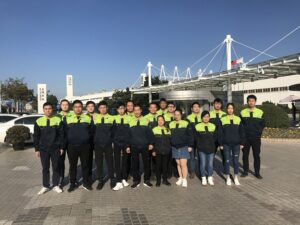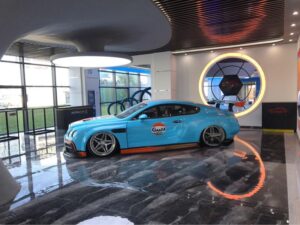Why Should Vibration Isolators Be Used for Large Equipment in Server Rooms?
In server rooms, large equipment can cause vibrations that impact performance and lead to equipment damage. Without proper vibration isolation, your system’s reliability may be at risk. This is where heavy-duty vibration isolators come in.
Vibration isolators are essential for preventing vibrations from damaging sensitive equipment in server rooms. These isolators, including vibration isolator pads and mechanical vibration isolators, help protect valuable systems, ensuring smooth operation and longevity.
But how do vibration isolators work, and why are they so important in server room environments?
What Are Vibration Isolators and How Do They Work?
Vibration isolators are devices designed to absorb and mitigate vibrations caused by large machinery or equipment, including vibration isolator pads and mechanical vibration isolators.
By using rubber or other flexible materials, vibration isolators for HVAC and other systems prevent vibrations from being transmitted to sensitive equipment, thus improving performance.
Vibration isolators are used across industries to protect equipment from vibrations. For instance, in HVAC systems, they prevent machinery vibrations from affecting other components. They are also crucial in server rooms, where even minor vibrations can interfere with sensitive servers, leading to costly damage. Vibration isolator catalogs typically provide a range of options to cater to various industrial needs.
What is the Purpose of Vibration Isolation Pads?
Vibration isolation pads are a key component of vibration isolators, designed to prevent vibrations from transferring between equipment and the foundation.
These pads absorb vibration energy, providing crucial protection for heavy equipment in server rooms.
Made from materials like rubber or neoprene, vibration isolator pads help dampen vibrations, preventing their transfer to sensitive equipment. This is especially important in server rooms, where even small mechanical disturbances can cause data loss or system failure. Choosing the right material and thickness of the pad ensures maximum vibration absorption.
Why Is It Critical to Use Vibration Isolators in Server Rooms?
Server rooms house critical equipment that requires precise environmental conditions for optimal performance. Vibration can disrupt this delicate balance.
Implementing vibration isolators for HVAC systems and servers ensures that sensitive equipment is protected from disruptive forces, leading to fewer failures and lower maintenance costs.
Excessive vibrations can cause significant damage to servers, hard drives, and networking equipment. By using vibration isolators, you can prevent such damage, ensuring your equipment remains functional for a longer period. In fact, pump vibration isolators for FCU are commonly used in server rooms and other environments to maintain the stability and reliability of the system, providing a quiet and smooth operation.
What Are the Requirements for a Vibration Isolator?
When selecting a vibration isolator, certain criteria must be met to ensure maximum efficiency and performance.
A good vibration isolator should be durable, adaptable to varying loads, and capable of isolating a broad range of frequencies.
The primary requirements for a vibration isolator include its ability to withstand the weight and frequency of the machinery it is supporting. For heavy-duty applications, such as with large compressors or generators, heavy-duty vibration isolators are essential. These isolators must also be resistant to wear and environmental conditions like temperature fluctuations or exposure to chemicals, which can degrade the isolator material over time.
What Is the Difference Between a Vibration Absorber and a Vibration Isolator?
While both vibration absorbers and isolators aim to mitigate vibrations, their functions and applications are distinct.
Vibration isolators prevent vibrations from transferring, while vibration absorbers dissipate energy to reduce the magnitude of vibrations.
A vibration isolator typically decouples the vibrating equipment from the structure to prevent the transmission of energy. On the other hand, a vibration absorber is designed to reduce the energy already in motion by absorbing the vibrations. Mechanical vibration isolators are a common choice in settings that require isolation from both structural and equipment vibrations.
What Are the Three Main Components of a Vibration System?
A vibration system consists of three primary components: the source of vibration, the medium through which vibrations travel, and the receiver or target.
Understanding these components is critical in designing effective vibration isolators for HVAC and other systems to reduce the impact of unwanted vibrations.
The source of vibration could be any large machinery or mechanical system, such as a pump or compressor. The medium through which vibrations travel might include building foundations or HVAC ducting. The receiver or target is typically the sensitive equipment, such as servers or control panels. Effective vibration isolators intervene at the interface between the medium and the receiver to minimize disruption.
What Are the Principles of Vibration Isolation?
Vibration isolation is based on the principle of reducing the transmission of vibration from the source to the target through the use of resilient materials.
Heavy-duty vibration isolators and other isolator systems work by using materials like rubber or springs to absorb and dissipate vibration energy.
The basic principle of vibration isolation is to use a material or device that absorbs the energy created by vibrations, preventing it from being transferred to sensitive equipment. Vibration isolators for HVAC systems, pumps, and compressors are designed to absorb and redirect vibration energy away from the machinery, improving system performance and longevity.
How Do Vibration Isolators Improve Equipment Longevity?
Long-term exposure to vibrations can significantly reduce the lifespan of sensitive electronic equipment.
By absorbing harmful vibrations, isolators protect equipment from mechanical stresses, extending its useful life and reducing the need for costly repairs or replacements.
Using vibration isolators for HVAC or pumps, for instance, helps prevent internal component failure, which is a common cause of equipment breakdowns. In server rooms, this translates to fewer instances of data loss or system downtime. Pump vibration isolators for FCU also help reduce wear and tear on the machinery, ensuring that it runs smoothly for longer.
Selecting the Right Vibration Isolators for Your Server Room
Choosing the right vibration isolators is key to ensuring maximum protection for your equipment.
Consider the type of equipment, vibration frequency, and environmental conditions when selecting isolators to optimize performance and protection.
When choosing vibration isolators, it’s important to assess the type of equipment you’re protecting and the level of vibration it generates. For heavy-duty systems like industrial pumps or compressors, heavy-duty vibration isolators are essential. For more sensitive equipment, such as servers or HVAC systems, lightweight vibration isolator pads may suffice. Always consult a vibration isolator catalog to find the best match for your needs.
Using vibration isolators in server rooms is crucial for protecting equipment, improving longevity, and ensuring smooth operation. These devices, including vibration isolator pads and mechanical vibration isolators, are an investment in the reliability of your infrastructure.





